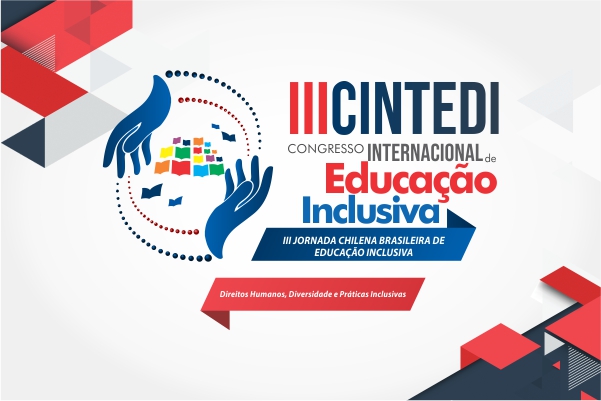THE USE OF GAMES ON FACILITATING THE TEACHING OF ENGLISH VOCABULARY FOR KIDS
"2018-08-29 00:00:00" // app/Providers/../Base/Publico/Artigo/resources/show_includes/info_artigo.blade.php
App\Base\Administrativo\Model\Artigo {#1845 // app/Providers/../Base/Publico/Artigo/resources/show_includes/info_artigo.blade.php #connection: "mysql" +table: "artigo" #primaryKey: "id" #keyType: "int" +incrementing: true #with: [] #withCount: [] +preventsLazyLoading: false #perPage: 15 +exists: true +wasRecentlyCreated: false #escapeWhenCastingToString: false #attributes: array:35 [ "id" => 44159 "edicao_id" => 97 "trabalho_id" => 557 "inscrito_id" => 1701 "titulo" => "THE USE OF GAMES ON FACILITATING THE TEACHING OF ENGLISH VOCABULARY FOR KIDS" "resumo" => "The teaching of the English language is a relevant issue in the context of contemporary education, but it’s filled by challenges in terms of knowledge-building. Therefore, this article aims to discuss on the teaching of vocabulary through games. In order to do this, important information was researched on the works of Lindsay (2006), Lowes (1998) e Oliveira (2011). Finally, it presents two games, both organized in the ambit of the Introduction to teaching profession project (PIBID), that intend to motivate the English vocabulary teaching. It considers the games to be contributing to the cognitive, motor and linguistic development of kids, making it easier for them to understand and learn many words of a foreign language." "modalidade" => "Comunicação Oral (CO)" "area_tematica" => "GT-05 - EDUCAÇÃO INFANTIL E INCLUSÃO" "palavra_chave" => "ENGLISH LANGUAGE, GAMES, VOCABULARY TEACHING" "idioma" => "Português" "arquivo" => "TRABALHO_EV110_MD1_SA5_ID1701_02082018222628.pdf" "created_at" => "2020-05-28 15:53:28" "updated_at" => "2020-06-09 19:01:35" "ativo" => 1 "autor_nome" => "REBECA MAIZA DO NASCIMENTO SILVA" "autor_nome_curto" => "REBECA MAIZA" "autor_email" => "rebeca_maiza@hotmail.com" "autor_ies" => null "autor_imagem" => "" "edicao_url" => "anais-iii-cintedi" "edicao_nome" => "Anais III CINTEDI" "edicao_evento" => "III Congresso Internacional de Educação Inclusiva e III Jornada Chilena Brasileira de Educação Inclusiva" "edicao_ano" => 2018 "edicao_pasta" => "anais/cintedi/2018" "edicao_logo" => "5e49fb7fd07bb_16022020233335.png" "edicao_capa" => "5f183d3fcde25_22072020102103.jpg" "data_publicacao" => null "edicao_publicada_em" => "2018-08-29 00:00:00" "publicacao_id" => 21 "publicacao_nome" => "Anais do Congresso Internacional de Educação e Inclusão - CINTEDI" "publicacao_codigo" => "2359-2915" "tipo_codigo_id" => 1 "tipo_codigo_nome" => "ISSN" "tipo_publicacao_id" => 1 "tipo_publicacao_nome" => "ANAIS de Evento" ] #original: array:35 [ "id" => 44159 "edicao_id" => 97 "trabalho_id" => 557 "inscrito_id" => 1701 "titulo" => "THE USE OF GAMES ON FACILITATING THE TEACHING OF ENGLISH VOCABULARY FOR KIDS" "resumo" => "The teaching of the English language is a relevant issue in the context of contemporary education, but it’s filled by challenges in terms of knowledge-building. Therefore, this article aims to discuss on the teaching of vocabulary through games. In order to do this, important information was researched on the works of Lindsay (2006), Lowes (1998) e Oliveira (2011). Finally, it presents two games, both organized in the ambit of the Introduction to teaching profession project (PIBID), that intend to motivate the English vocabulary teaching. It considers the games to be contributing to the cognitive, motor and linguistic development of kids, making it easier for them to understand and learn many words of a foreign language." "modalidade" => "Comunicação Oral (CO)" "area_tematica" => "GT-05 - EDUCAÇÃO INFANTIL E INCLUSÃO" "palavra_chave" => "ENGLISH LANGUAGE, GAMES, VOCABULARY TEACHING" "idioma" => "Português" "arquivo" => "TRABALHO_EV110_MD1_SA5_ID1701_02082018222628.pdf" "created_at" => "2020-05-28 15:53:28" "updated_at" => "2020-06-09 19:01:35" "ativo" => 1 "autor_nome" => "REBECA MAIZA DO NASCIMENTO SILVA" "autor_nome_curto" => "REBECA MAIZA" "autor_email" => "rebeca_maiza@hotmail.com" "autor_ies" => null "autor_imagem" => "" "edicao_url" => "anais-iii-cintedi" "edicao_nome" => "Anais III CINTEDI" "edicao_evento" => "III Congresso Internacional de Educação Inclusiva e III Jornada Chilena Brasileira de Educação Inclusiva" "edicao_ano" => 2018 "edicao_pasta" => "anais/cintedi/2018" "edicao_logo" => "5e49fb7fd07bb_16022020233335.png" "edicao_capa" => "5f183d3fcde25_22072020102103.jpg" "data_publicacao" => null "edicao_publicada_em" => "2018-08-29 00:00:00" "publicacao_id" => 21 "publicacao_nome" => "Anais do Congresso Internacional de Educação e Inclusão - CINTEDI" "publicacao_codigo" => "2359-2915" "tipo_codigo_id" => 1 "tipo_codigo_nome" => "ISSN" "tipo_publicacao_id" => 1 "tipo_publicacao_nome" => "ANAIS de Evento" ] #changes: [] #casts: array:14 [ "id" => "integer" "edicao_id" => "integer" "trabalho_id" => "integer" "inscrito_id" => "integer" "titulo" => "string" "resumo" => "string" "modalidade" => "string" "area_tematica" => "string" "palavra_chave" => "string" "idioma" => "string" "arquivo" => "string" "created_at" => "datetime" "updated_at" => "datetime" "ativo" => "boolean" ] #classCastCache: [] #attributeCastCache: [] #dates: [] #dateFormat: null #appends: [] #dispatchesEvents: [] #observables: [] #relations: [] #touches: [] +timestamps: false #hidden: [] #visible: [] +fillable: array:13 [ 0 => "edicao_id" 1 => "trabalho_id" 2 => "inscrito_id" 3 => "titulo" 4 => "resumo" 5 => "modalidade" 6 => "area_tematica" 7 => "palavra_chave" 8 => "idioma" 9 => "arquivo" 10 => "created_at" 11 => "updated_at" 12 => "ativo" ] #guarded: array:1 [ 0 => "*" ] }



